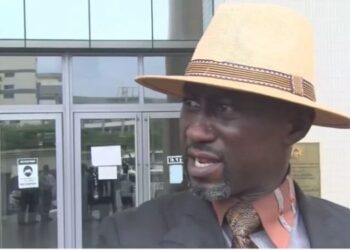According to a study conducted by the Center for Economics, Finance, and Inequality Studies, 81.6 percent of Ghanaians want the Electronic Transaction Levy (E-Levy) to be canceled and never implemented.
36.4 percent, on the other hand, were unaware of the E-Levy.
Dr. Benjamin Amoah of the University of Ghana Business School and Professor Anthony Amoah of the University of Environment and Sustainable Development conducted the study.
The paper relies heavily on Google Online Forms to obtain data. Every respondent was automatically limited to one entry.
Furthermore, 13.5 percent of respondents said that the E-Levy should be enacted and implemented.
However, 4.9 percent of the public said it should be enacted after the year 2022.
In addition, 1,679 of the 2,650 respondents were aware of the E-Levy. This means that a significant amount of education is required to raise public awareness and comprehension of the E-Levy.
64.6 percent of Ghanaians say the country requires additional funding.
The study also examined the country’s budgetary difficulties.
According to the results, 64.6 percent of Ghanaians believe that the country needs more money.
Those who shared the other viewpoint made up 25.9 percent of those polled, with the belief that there is no need to boost government revenue.
91.8 percent of Ghanaians are concerned about the country’s mounting debt.
54.3 percent of Ghanaians want the government to cut back on spending.
In terms of alternatives to the E-Ley, approximately 54.3 percent of respondents prefer a reduction in wasteful government spending.
A further 37.7 percent want economic administrators to close down corrupt channels that constitute income leaks.
Other income streams preferred to the E-Levy include property rate enforcement, which has a score of 3.9 percent.
1.1 percent of respondents favor a tax on treasury investment income.
46 percent of Ghanaians want the E-Levy to be canceled.
When asked what rate they would be prepared to pay if the E-Levy was enacted, 46 percent said they would prefer a zero rate.
The non-zero rate, on the other hand, was 54%.
Those who support a 1.7 percent levy are 0.2 percent of the non-zero population.
A 0.50 percent charge, on the other hand, will be supported by 21.1 percent.
A additional 10.4 percent would favor a 1% transaction tax.
According to the report, 10% of those polled would prefer a monthly fee of $5 on all transactions above $100.
Read Also: Nine UEW students were killed in a car accident in Asuboi
SOURCE: myjoyonline































